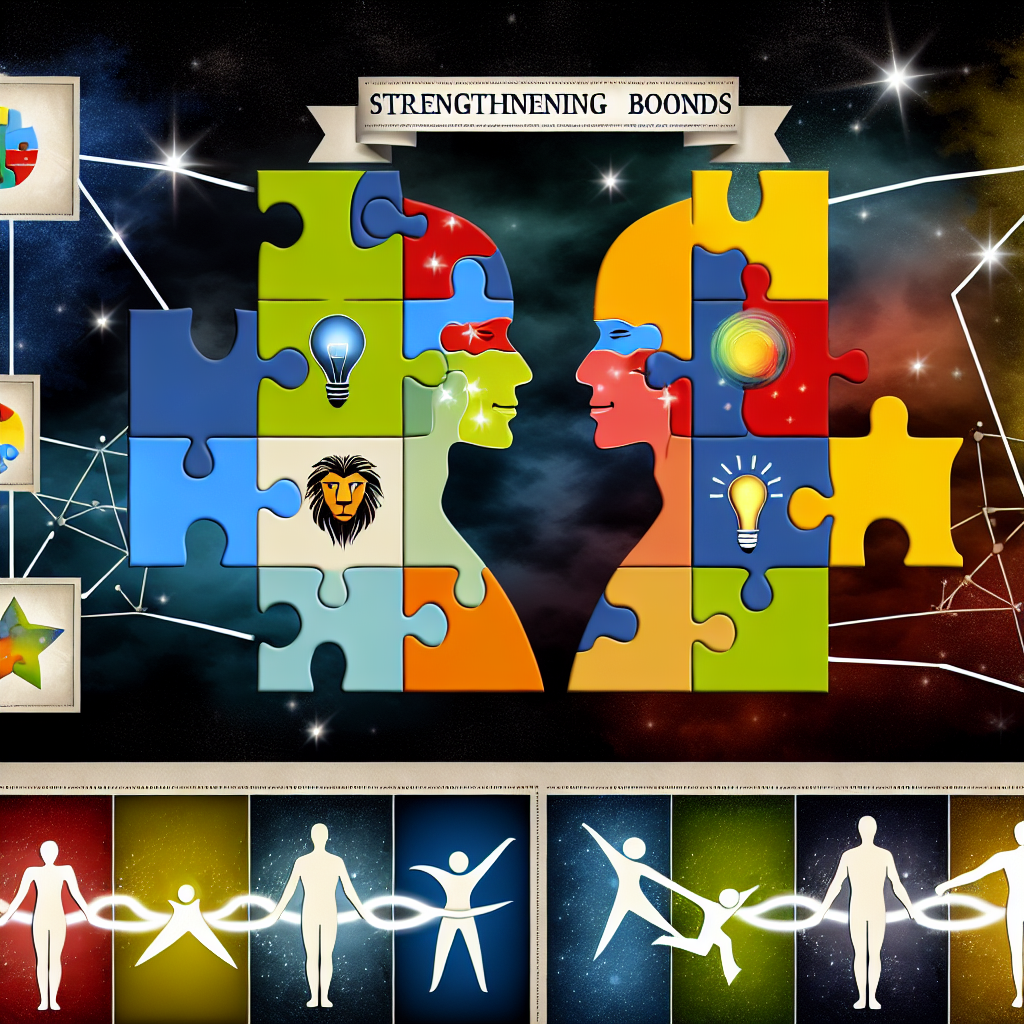Here is the cleaned-up and expanded WordPress blog article:
Why Opposites May Truly Attract: Understanding the Complementary Traits Hypothesis
Keywords: complementary traits hypothesis, relationship compatibility, opposites attract, dating tips, romantic partnerships, relationship science
Understanding Love Through the Complementary Traits Hypothesis
The world of dating and relationships is often colored with the saying, “opposites attract”—a phrase suggesting that people with differing personalities are magnetically drawn to each other. While this idea might sound romantic, many people still wonder: is there actual science behind it?
The Complementary Traits Hypothesis offers an insightful and evidence-based answer to this age-old question. It proposes that individuals with contrasting, yet complementary characteristics can form highly successful and deeply connected relationships.
This concept diverts from the traditional principle of “similarity attraction,” which suggests that people tend to be more compatible with those who share their values, behaviors, and interests. While shared values remain essential to long-lasting relationships, the Complementary Traits Hypothesis adds a nuanced layer to modern matchmaking—highlighting how differing traits can work in harmony to create a balance that enriches both partners.
Think of a relationship as a partnership in which two people bring their own strengths to the table. For example, a highly organized and disciplined individual might thrive alongside a more spontaneous, creative partner. In this case, each person may help the other see new perspectives and develop traits they may lack themselves. This balance can foster growth and create a dynamic interplay where partners benefit from their differences rather than clash over them.
How Opposing Traits Can Build Stronger Bonds
In romantic relationships, complementary traits often fall into areas such as emotional expressiveness, extroversion vs. introversion, planning vs. spontaneity, and even risk-taking versus caution. These variances act as stabilizing forces. When properly communicated and understood, such traits act not as conflicting features, but as assets.
Moreover, with people dating later in life, or returning to the dating scene post-divorce or bereavement, there’s a broader space for these complementary dynamics to flourish. Singles aged from 18 to their 80s are finding that dating someone with different—but fulfilling—characteristics can lead to deeper emotional connections and even greater long-term satisfaction.
The Complementary Traits Hypothesis doesn’t claim that all opposites attract or that every difference promotes growth. Rather, it underscores that certain contrasting traits can create emotional support systems, reduce relationship fatigue, and encourage personal development when rooted in mutual respect and understanding.
Scientific Studies Backing the Hypothesis
Scientific studies over the years have attempted to dissect the mechanics of romantic and long-term compatibility. While many earlier findings leaned toward the similarity-attraction model, newer research reveals a more complex narrative. The Complementary Traits Hypothesis finds real-world validation in psychology and social dynamics studies.
One noteworthy study published in Psychological Science (2007) found that individuals with high levels of agreeableness and emotional stability tended to benefit from having partners with complementary levels of conscientiousness and openness. These combinations often resulted in greater mutual satisfaction and stability in long-term partnerships. (Read study)
Research conducted by Wellesley College and the University of Kansas, led by Professor Angela Bahns, revealed that while initial attraction often stems from shared traits, couples who differed in how they handle emotion and stress maintained healthier long-term connections. These differences created internal support systems that aided in conflict resolution and emotional balance. (Read study)
Additionally, a 2013 study from Personality and Social Psychology Review emphasized the role of “diverse but complementary cognitive styles.” For instance, couples with varying thought processes—such as holistic vs. analytical—experienced more creative decision-making and achieved stronger emotional resilience together. (Read study)
What Therapists and Matchmakers Say About Complementary Traits
Couples’ counselors and relationship therapists often observe that opposites can indeed attract and thrive—especially when the relationship is built on mutual admiration and communication. Dr. John Gottman, known for his pioneering research on marital stability, suggests that similarity is not the only road to success. Instead, relationships that celebrate managed differences—with respect and clear dialogue—tend to endure and thrive.
According to Gottman, couples flourish not because they are alike, but because they skillfully manage and even celebrate their differences. Balancing varying traits can prevent stagnation and encourage continued growth—both for the relationship and the individuals within it. (Read more)
From a matchmaking perspective, this evidence calls for greater intentionality. A successful match should prioritize balance—finding someone who fills in the gaps, naturally encourages growth, and provides counter-support for emotional and behavioral needs. It’s about pairing strengths to cover each other’s blind spots.
The Perfect Relationship Might Be Your Opposite
The Complementary Traits Hypothesis presents a compelling vision for what modern relationship success can look like: partnerships where balance, respect, and growth stem from harmonious differences. As dating landscapes evolve, this insight invites singles of all ages to embrace new possibilities—not by finding someone identical, but someone who beautifully complements who they are.
Sometimes, the traits you don’t have are the ones your ideal partner will bring to your life. And sometimes, what makes us different is exactly what brings us closer.
References
– Psychological Science – “Personality and Relationship Satisfaction”
– American Psychological Association – “Opposites Don’t Attract”
– Personality and Social Psychology Review – “Complementary Cognitive Styles in Relationships”
– The Gottman Institute – “Why Relationships Succeed or Fail”
Concise Summary:
The Complementary Traits Hypothesis suggests that individuals with contrasting, yet complementary characteristics can form highly successful and deeply connected relationships. This concept highlights how differing traits can work in harmony to create a balance that enriches both partners, rather than clashing over them. Scientific studies and relationship experts support the idea that opposites can indeed attract and thrive when the relationship is built on mutual respect and understanding.

Dominic E. is a passionate filmmaker navigating the exciting intersection of art and science. By day, he delves into the complexities of the human body as a full-time medical writer, meticulously translating intricate medical concepts into accessible and engaging narratives. By night, he explores the boundless realm of cinematic storytelling, crafting narratives that evoke emotion and challenge perspectives. Film Student and Full-time Medical Writer for ContentVendor.com




